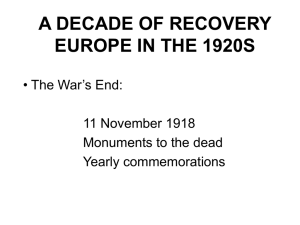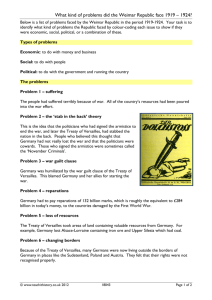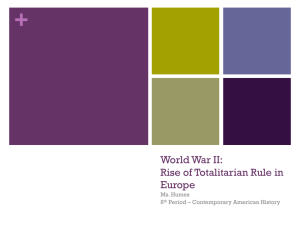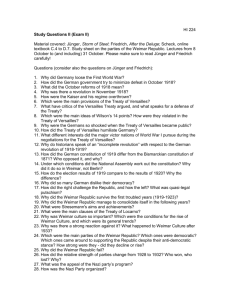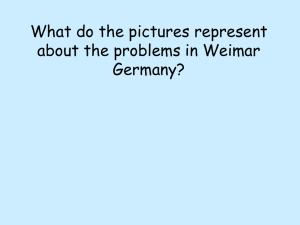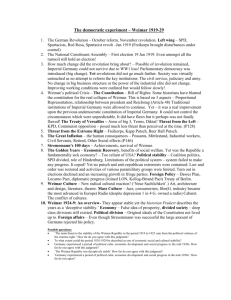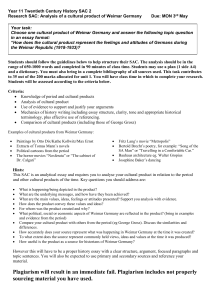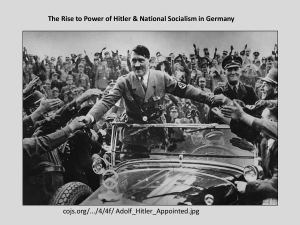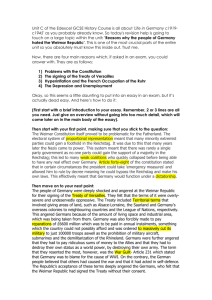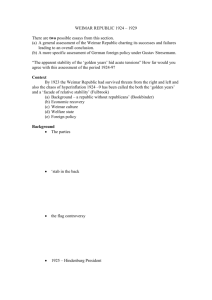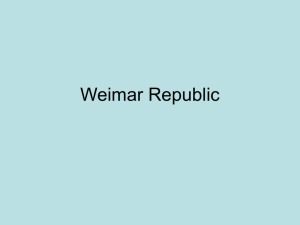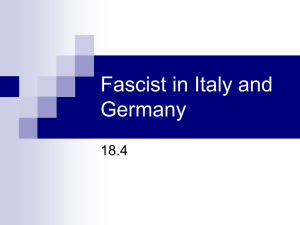The Weimar Republic was doomed from the start - aise
advertisement
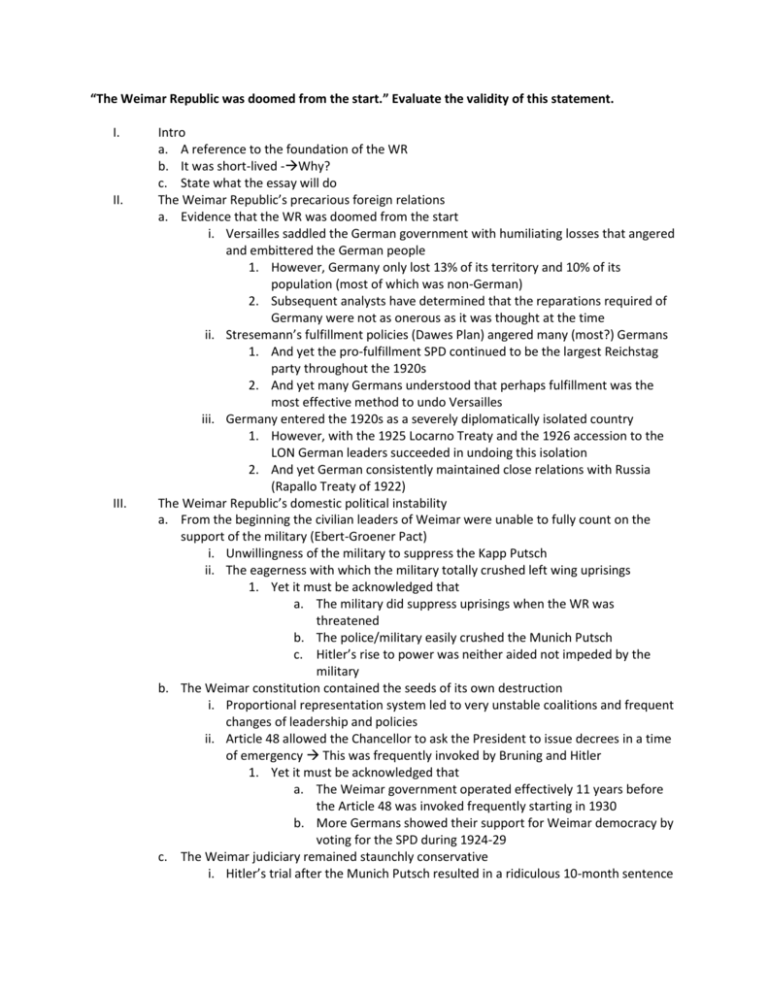
“The Weimar Republic was doomed from the start.” Evaluate the validity of this statement. I. II. III. Intro a. A reference to the foundation of the WR b. It was short-lived -Why? c. State what the essay will do The Weimar Republic’s precarious foreign relations a. Evidence that the WR was doomed from the start i. Versailles saddled the German government with humiliating losses that angered and embittered the German people 1. However, Germany only lost 13% of its territory and 10% of its population (most of which was non-German) 2. Subsequent analysts have determined that the reparations required of Germany were not as onerous as it was thought at the time ii. Stresemann’s fulfillment policies (Dawes Plan) angered many (most?) Germans 1. And yet the pro-fulfillment SPD continued to be the largest Reichstag party throughout the 1920s 2. And yet many Germans understood that perhaps fulfillment was the most effective method to undo Versailles iii. Germany entered the 1920s as a severely diplomatically isolated country 1. However, with the 1925 Locarno Treaty and the 1926 accession to the LON German leaders succeeded in undoing this isolation 2. And yet German consistently maintained close relations with Russia (Rapallo Treaty of 1922) The Weimar Republic’s domestic political instability a. From the beginning the civilian leaders of Weimar were unable to fully count on the support of the military (Ebert-Groener Pact) i. Unwillingness of the military to suppress the Kapp Putsch ii. The eagerness with which the military totally crushed left wing uprisings 1. Yet it must be acknowledged that a. The military did suppress uprisings when the WR was threatened b. The police/military easily crushed the Munich Putsch c. Hitler’s rise to power was neither aided not impeded by the military b. The Weimar constitution contained the seeds of its own destruction i. Proportional representation system led to very unstable coalitions and frequent changes of leadership and policies ii. Article 48 allowed the Chancellor to ask the President to issue decrees in a time of emergency This was frequently invoked by Bruning and Hitler 1. Yet it must be acknowledged that a. The Weimar government operated effectively 11 years before the Article 48 was invoked frequently starting in 1930 b. More Germans showed their support for Weimar democracy by voting for the SPD during 1924-29 c. The Weimar judiciary remained staunchly conservative i. Hitler’s trial after the Munich Putsch resulted in a ridiculous 10-month sentence IV. V. ii. During the White Terror of the early 1920s the judiciary tenaciously prosecuted the few left-wing assassins while ignoring the more frequent crimes of the rightwing 1. And yet it must be acknowledged that a. Hitler was still sentenced to jail b. The conservative-ness of the judiciary alone was insufficient to doom the WR The Weimar Republic’s economic instability a. The WR was incapable to paying such high reparations (Keynes) i. However, the 132 billion gold marks was frequently revised downward and eventually suspended ii. However, some economists have argued that German did possess the economic capacity to pay the reparations iii. However, many Germans blamed the Allies rather than the Weimar govt for the reparations issue b. Versailles stripped Germany of many of its economic resources i. (80% of steel and 71% of coal as well as ports like Danzig as well as colonies) ii. However, this amounts to only 10% of total economic output c. The Treaty of Versailles put Germany in a situation of extreme vulnerability i. By demilitarizing the Rhineland, stripping her of allies and limiting the army ii. Consequently the Ruhr Occupation 1. Led to hyperinflation that destroyed German confidence in democracy and capitalism 2. However, it must be acknowledged that that the Weimar Republic was able to end the hyperinflation and restore economic prosperity in the late 1920s Conclusion
